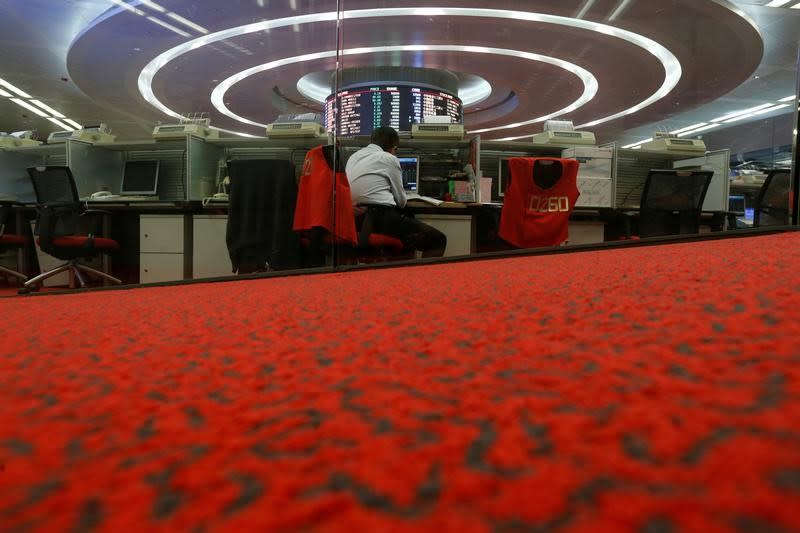Financials push Asian stocks down for second straight day

By Saikat Chatterjee
HONG KONG (Reuters) - Asian stocks declined on Monday, led by financials, as a renewed drop in sovereign bond yields on political concerns prompted some investors to move to the sidelines after a recent equities rally.
European stocks indicated a generally higher start, according to IG Markets predictions.
Much interest is focused on U.S. President Donald Trump's speech to a joint session of Congress on Tuesday night, where he is expected to unveil some elements of his plans to cut taxes.
MSCI's broadest index of Asia-Pacific shares outside Japan was down 0.3 percent, near the day's lows. The index, which fell 0.7 percent on Friday, is still up more than 11 percent since end-December.
Japan finished 0.9 percent lower, and Australia off 0.3 percent.
Japanese shares fell to 2-1/2 week lows on concerns that a stronger yen would crimp corporate earnings.
"Investors recently confirmed that Japanese corporate earnings will likely be strong next fiscal year. But if the dollar falls below 110 yen, such hopes will change," said Takuya Takahashi, a strategist at Daiwa Securities.
On a forward valuation basis, Asia-Pacific shares are trading traded at a price/earnings multiple of 15 times compared to nearly 19.6 times in the U.S. and 16 times in Europe, according to Thomson Reuters data.
"Until we see some strong earnings, we are in for a correction phase," the head of equities at a U.S. fund in Hong Kong predicted.
Though U.S. stocks clawed their way to a higher close on Friday, major indices spent much of that day's session in negative territory, suggesting increased caution. Index futures were barely in the green.
BOND SIGNALS
Sovereign bond yields fell on Friday, pushing yields down in Australia and Japan on Monday, as a renewed flight to safety bid thanks to weak stock markets and a looming election in France that poses a key political risk for markets.
Investors fear far-right National Front leader Marine Le Pen might win the presidential election this year and lead France out of the euro zone. Polls show Le Pen losing to either centrist Emmanuel Macron or right-wing Francois Fillon, but few people are willing to count her out.
Ten-year German bond yields have dropped nearly 30 basis points so far this month, far outpacing a 13 basis point decline in yields of comparable U.S. debt.
In Asia, yields on five-year Japanese benchmark debt plumbed to their lowest levels since mid-November, at minus 0.14 percent, while ten-year Australian bonds edged three basis points lower to 2.71 percent.
In currencies, the dollar scored some early gains against the Chinese yuan and the Philippine peso but remained in narrow ranges against major currencies.
Many investors have a core overweight position on the greenback betting on a rebound in the global economy, firmer commodity prices and a U.S. rate hikes. Goldman Sachs Asset Management expects the dollar to gain against the Aussie, kiwi and the yen.
In commodities, Brent crude rose 0.75 percent to $56.43 per barrel while U.S. West Texas Intermediate was up 0.6 percent at $54.33 per barrel as a global supply glut appeared to ease.
(Additional reporting by Ayai Tomisawa in TOKYO; Editing by Richard Pullin and Richard Borsuk)

 Yahoo Finance
Yahoo Finance 